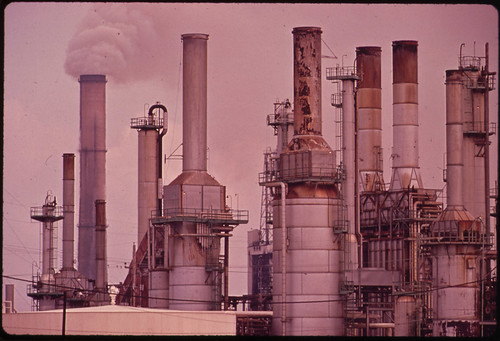Growing Oil Demand Creating Serious Problems
It seems to me inescapably true that the population on this planet is growing. More and more people here in the United States and throughout the world are driving cars, and the use of oil and its byproduct gasoline to fuel our cars and trucks is creating long-term serious problems for our environment. At the same time, we have serious economic and security issues related to the use of oil, as the worldwide demand for oil increases. In short, we have a bundle of various serious problems related to our use of oil.
This Generation Must Act
Doing nothing is not an option. We have to address these issues. If we don’t address these issues, in not very many years we will experience very negative effects on our physical health, our economy, and our national security. If we don’t address these issues, I fear that the children of today as well as future generations will not look back on our generation with the same fondness we look back on prior generations. If we don’t address these issues, no one will call us “the greatest generation.”
One Action Is Increasing Fuel Efficiency Standards
The good news, the very hopeful news, is that as a society we are beginning to address the challenges we face, including thinking of ways to decrease the amount of oil we use. And I for one am very grateful that the US EPA is leading the way, with its many initiatives and efforts, including with NHTSA the proposed increase in the fuel efficiency standards for cars and light trucks in model years 2017-2025 that brings us here today.
This Action Is a No-Brainer
I have spoken to many people about the proposed fuel efficiency standards -- to family, friends, colleagues, and neighbors. The reaction of virtually everyone I have spoken to about this can be summed up in the words of a woman I met at an exercise class this morning. “Seems like a no brainer,” she said. That’s exactly what this proposal for increased fuel efficiency is – a no brainer. I know that the EPA and NHTSA cannot just call something a no brainer and make it law, so I appreciate and thank you for holding this hearing and for the thoughtful way you approach this subject. I sincerely hope that the EPA and NHTSA will take this very important step toward decreasing our dependence on oil for the benefit of our children and future generations. And maybe, just maybe, if we take this step and some other similarly prudent and wise steps those future generations will admire us for thinking ahead and taking prudent action to protect ourselves, our planet, and our way of life by decreasing our dependence on oil.
Let me close by thanking you for your attention. And let me thank the other panelists. I take real hope knowing that there are so many compelling spokespersons on this important issue. This is our generation’s time to stand and face the greatest threat of our time.


